DHA Supplementation During Pregnancy: How Much is Enough?
Are the current recommendations for DHA supplementation during pregnancy adequate? Research presented at the 7th International Congress on Vegetarian Nutrition suggests a higher intake may be more beneficial.
Recently, I had the opportunity to attend the 7th International Congress on Vegetarian Nutrition (ICVN).
ICVN happens every five years and it’s a time for researchers, scientists, and others interested in vegetarian nutrition and lifestyle to gather and discuss the latest scientific breakthroughs in the field.
It was the first time I’d attended the Congress, and I was eating up all of the interesting information shared.
One of the most interesting presentations I attended was on prenatal DHA supplementation. DHA is an important nutrient for everyone, but especially for pregnant women and those following vegan/vegetarian diets.
Today I’m going to share with you my top five takeaways from the Congress, including what I learned about the latest research on DHA and pregnancy!
Top 5 Takeaways from ICVN
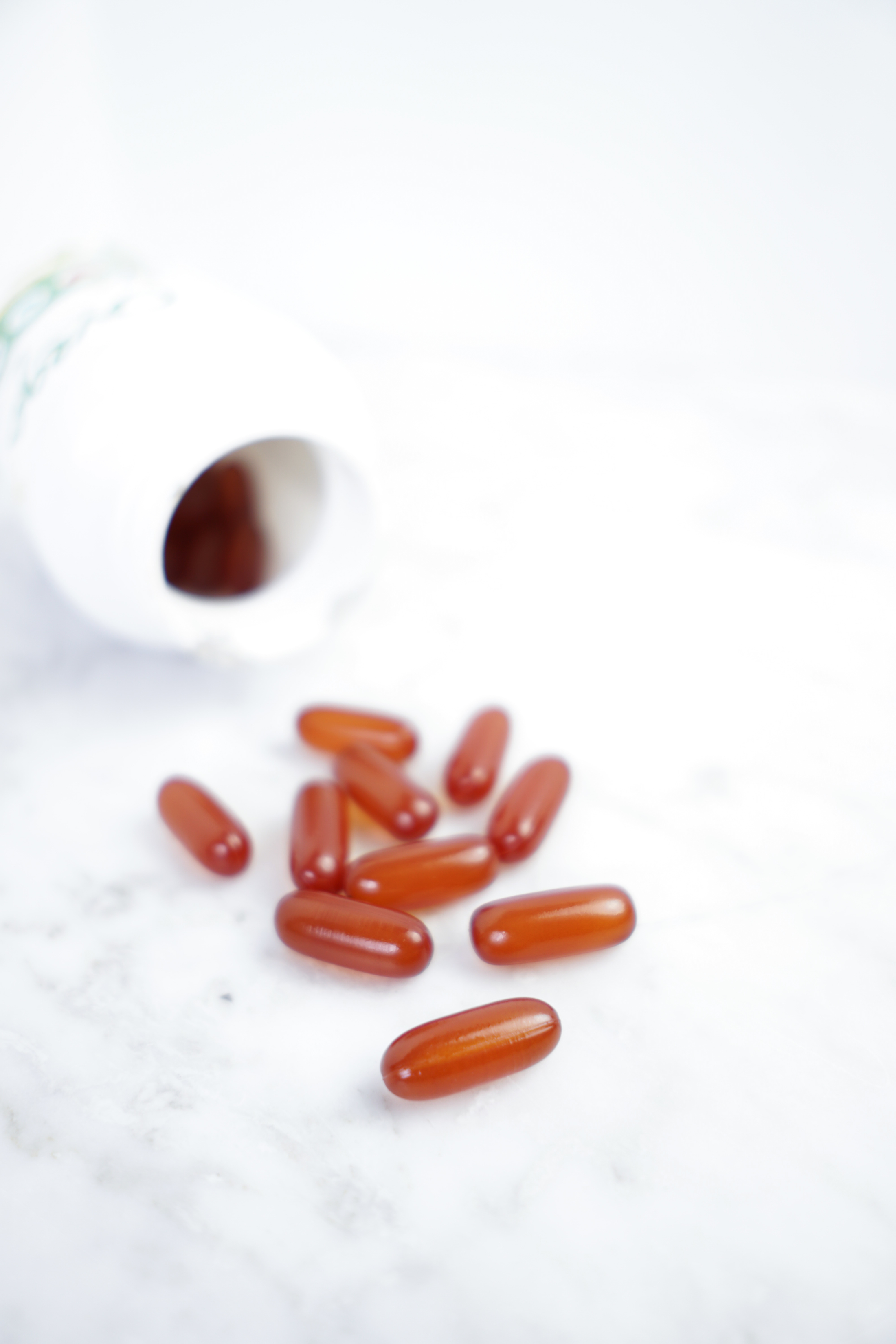
1. The recommendations for DHA supplementation during pregnancy may be suboptimal.
DHA, aka docosahexaenoic acid, is a “long-chain” polyunsaturated fatty acid, and a member of our well-known omega-3 fatty acid family. Our body has the ability to make DHA from another “essential” fatty acid called alpha-linolenic acid (ALA), but this conversion is limited.
DHA is only found in the diet in animal products like seafood. Salmon, for example, has more than 1000 mg of DHA per 3 oz serving.

Try my Orange Ginger Salmon recipe! >>
Research has shown that DHA is required for optimal brain health, and is especially important for growing infants. DHA gives structure to our cells, provides energy to our body, and helps with inflammation, among many other functions.
According to the National Institute of Health, the consumption of DHA in the US is poor. Average intake is 40 mg in children and teens and about 90 mg in adults.
Research suggests that DHA supplementation may help prevent complications during pregnancy like preterm birth and low birthweight and improve cognition in infants.
Recommendations for DHA are currently set at a minimum of 200-300 mg/day for pregnancy and lactation. However, some studies have shown that supplementation with less than 600 mg/day were not beneficial in preventing early preterm birth.
At ICVN, Dr. Susan Carlson presented evidence from recent studies she’s conducted showing that DHA supplementation in the range of 600 mg-1000 mg has been associated with decreased risk of pre-term delivery and higher birthweight, as well as a positive effect on infant’s brain development.
Given this emerging data, pregnant women of all dietary patterns will likely benefit from consuming a daily DHA supplement from either fish oil or algae oil between 600-1000 mg/day. Algal oil is derived from microalgae, which is what fish consume to get their DHA, and is biologically equivalent to the DHA received in fish oil.
Looking for an algae oil supplement? I like Ovega 3 or Nordic Naturals.
You can also aim to get your intake from fatty fish. This chart shows the amount of DHA in various species per 3 oz serving.
2. All plant-based eating patterns show benefits over a non-vegetarian diet.
While vegan diets have been positively associated with overall health, studies show that individuals who follow any kind of vegetarian eating pattern have a reduced risk of death from all causes as well as lower rates of obesity, diabetes, and high blood pressure.
Results from the Adventist Health Study 2 (AHS-2) showed a 12% lower rate of mortality for all types of vegetarians compared to non-vegetarians. When they broke this out by the type of plant-based eating pattern, the risks were 15%, 9%, 19%, and 8% lower for vegans, lacto-ovo vegetarians, “pescatarians,” and semi-vegetarians, respectively.
3. Studies show that cutting back on red meat can decrease your risk of premature death by up to 10%.
At ICVN, Dr. Frank B. Hu of the Harvard School of Public Health explained how protein intake in the US is close to double the daily recommendation of 0.8 g of protein/kg of body weight, and that red meat is the primary source of this protein.
Research has shown a correlation between a high intake of red meat, both processed and unprocessed, and an increased risk of chronic diseases such as cardiovascular disease and cancer.
He shared a study of over 100,000 adults showing that the substitution of 1 serving per day fish, poultry, nuts, legumes, low-fat dairy or whole grains for 1 serving of red meat was associated with a 7-19% lower mortality risk. The study also suggested that about 9% of deaths in men and 8% in women could have been prevented if individuals consumed less than a ½ servings per day (42 g/day) of red meat.
4. Those following a plant-based diet should watch their iodine intake.
A plant-based diet is more likely that an omnivorous diet to be high in “goitrogens,” compounds which can interfere with iodine uptake by the thyroid when iodine is in short supply. However, goitrogenic foods – aka cruciferous vegetables such as broccoli, Brussel sprouts, cabbage, cauliflower, as well as soy and peanuts – are also extremely healthy and should not be excluded from the diet.
Registered Dietitian Melina Vestanto discussed that perhaps vegans are not consuming adequate levels of iodine. Iodine is mainly found in animal foods and iodized salt. However, culinary trends have moved towards cooking with sea salt and Himalayan salt, in which iodine is lost in drying.
People who follow a plant-based diet should make sure to include a reliable source of iodine in their diet every day. The RDA is 150 mg, which can be found in 1/3 – ½ tsp iodized salt (FYI there is iodized sea salt), 1/16 teaspoon of kelp, or a multivitamin, which is likely the most reliable option.
5. Postmenopausal women may benefit more from a plant-based diet.
Serum ferritin is an indicator of how much iron is stored in our cells. Dr. Craig of the Loma Linda University School of Public Health discussed how plant-based eaters typically show lower serum ferritin levels compared to nonvegetarians.
Despite concerns, studies have shown that iron deficiency anemia is not greater among plant-based eaters compared to meat-eaters.
Additionally, a recent study showed that higher serum ferritin levels, especially in postmenopausal women, was associated with insulin resistance and metabolic syndrome – risk factors for Type 2 Diabetes.
After menopause, women are more susceptible to gain weight due to hormonal changes. Because estrogen helps with fat metabolism, the decreased levels of estrogen in combination with increased fat mass can lead to insulin resistance.
Therefore, a plant-based diet, which may lead to lower serum ferritin levels, may not be a disadvantage when iron intake is sufficient and diet replenishes loses.

Overall, the conference reinforced my position that a Predominantly Plant-Based eating pattern is ideal for health promotion and disease prevention and left me with some insights on how to optimize my diet.
Thinking you’d like to give this sustainable lifestyle a try? Get my 7-Day Predominantly Plant-Based Meal Plan for FREE! >>
And for a comprehensive guide on everything you need to know to have a happy, healthy plant-based pregnancy, be sure to check out Plant-Based Juniors’ Predominantly Plant-Based Pregnancy Guide!
PIN the post! >>
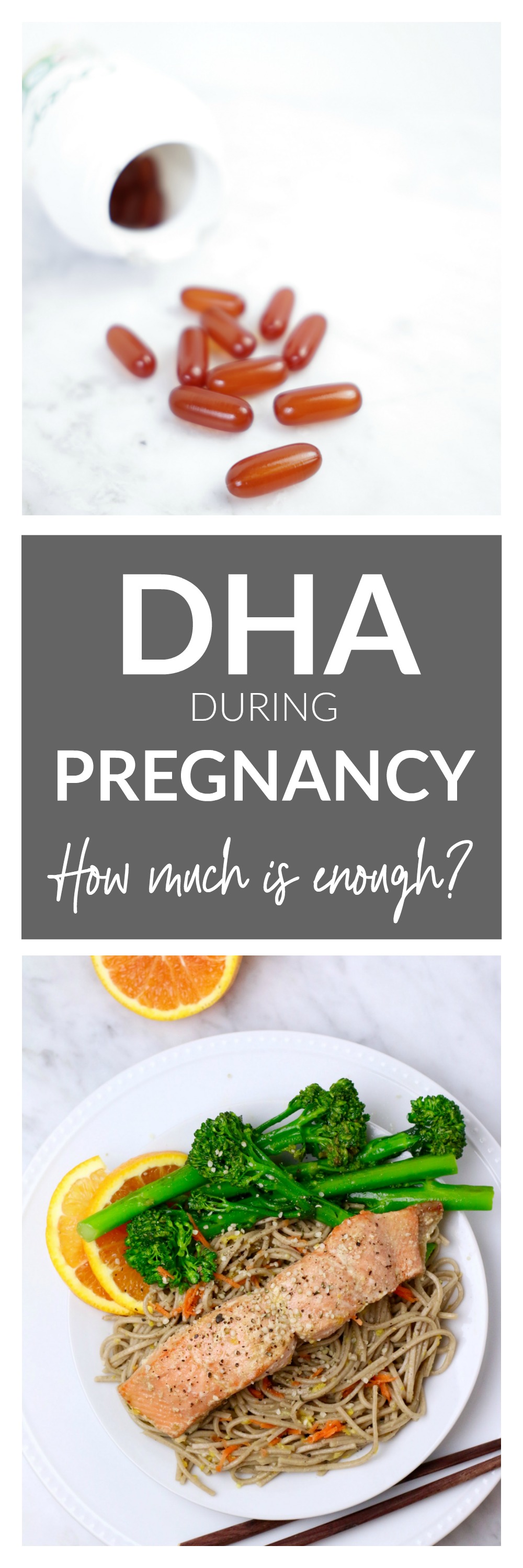
Weigh-in: How do you optimize your DHA intake? Do you take DHA supplements? Do you think DHA supplementation is necessary during pregnancy?
*Reporting and writing by Whitney E. RD team member, Marisol Ortiz.

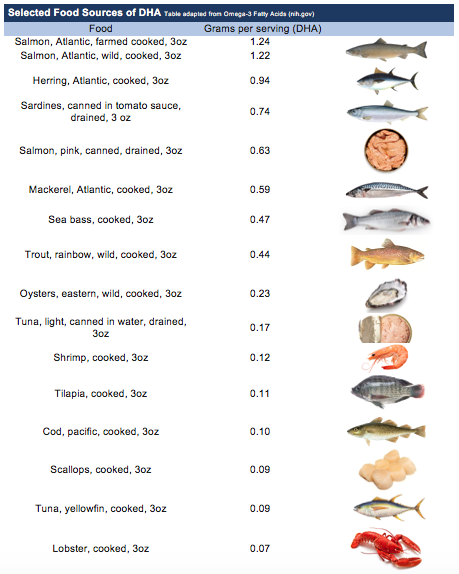
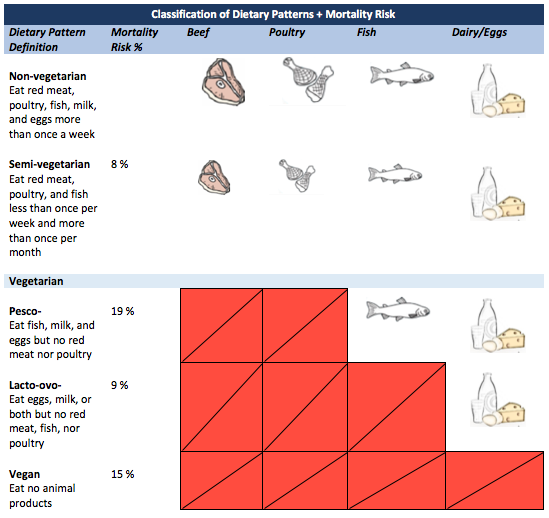
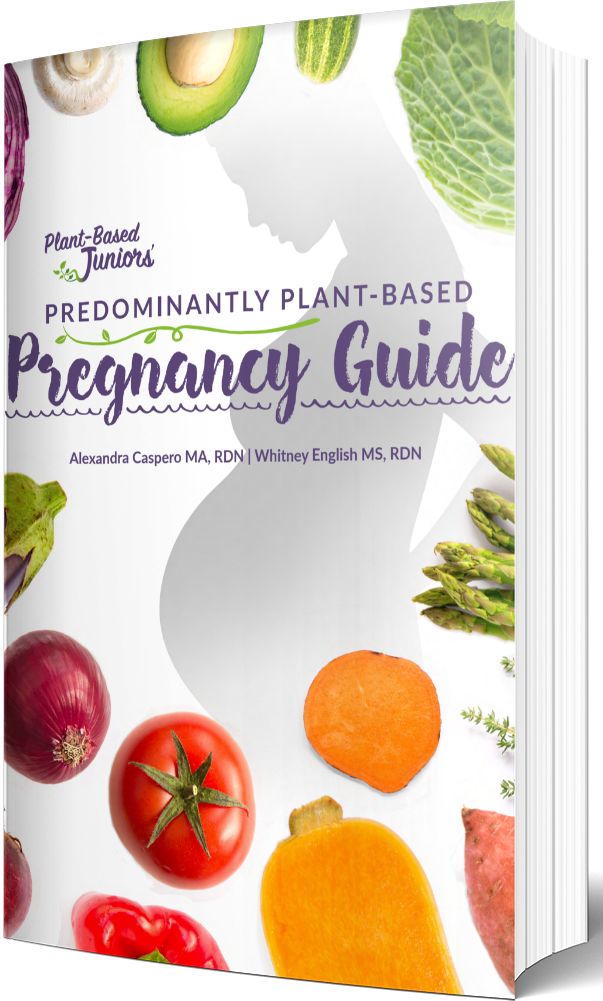




Alisa Fleming says:
I’m always amazed by all of the things to consider when you’re pregnant, and all of the supplements recommended.
Jessica Levinson says:
Thanks for sharing your takeaways and the research from ICVN! So interesting to hear about the latest research on this topic.
Lorie says:
Sounds like an interesting session! Lots of info!
basket random says:
Does DHA really matter during pregnancy? Does it necessarily need to be supplemented?